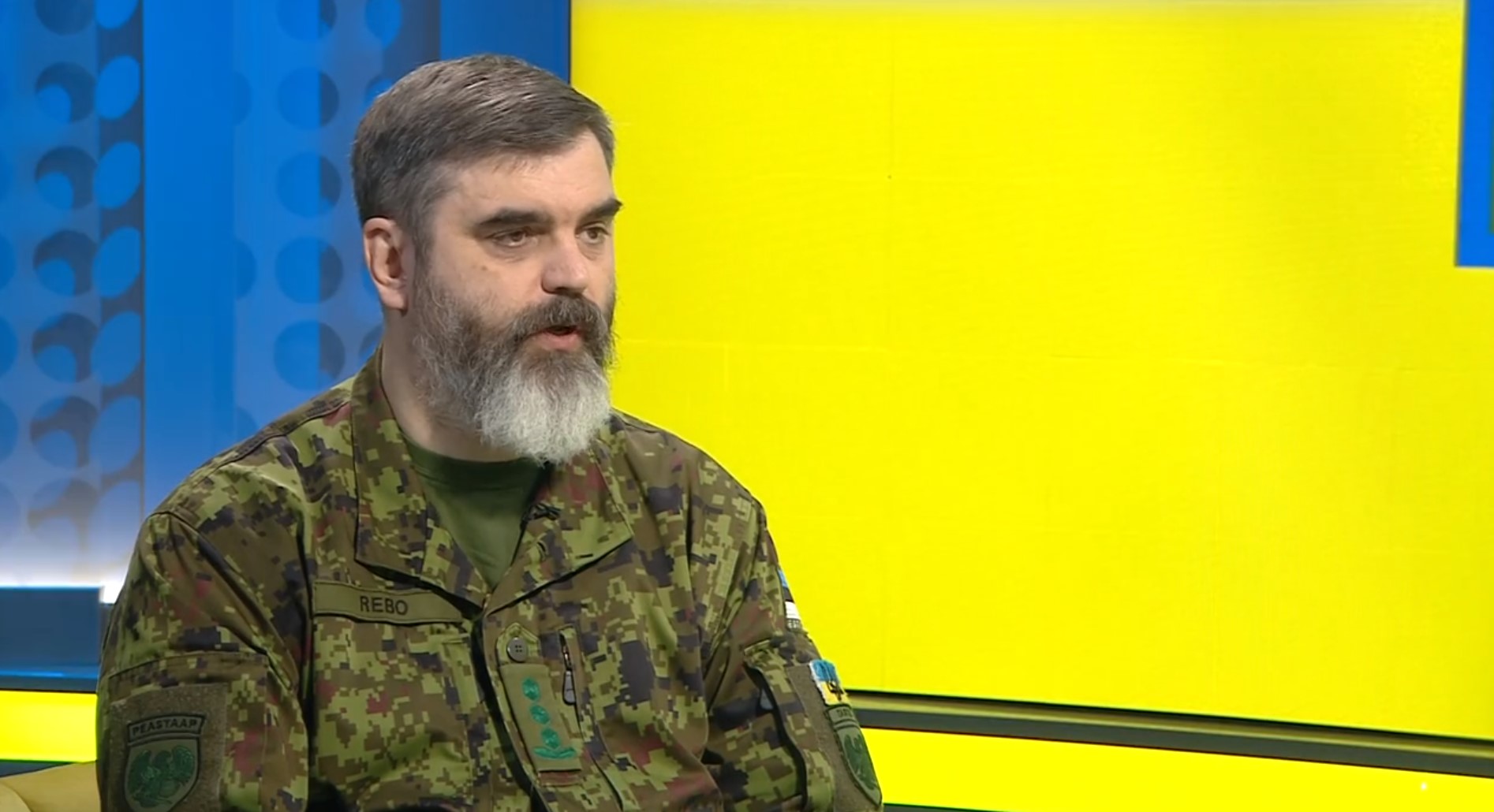Russian forces have made small advances on the front lines in Ukraine because they have more artillery and have also learned to use more drones
This was stated by the Chief of the General Staff of the Estonian Defense Forces, Colonel Eero Rebo, reported by ERR.
Rebo noted that the progress of Russian forces has been limited because Ukraine is defending itself well. However, there are several reasons behind the progress.
"It is also true that Putin's side has more artillery, more shells to fire at Ukrainians. And we also see that the activity with drones is no longer a monopoly of Ukraine, but the opposing side has also learned this game. On the other hand, we see on the Ukrainian side how people are protected, how positions are given up when they are hopeless, and how blood is shed in defense to replace artillery shells, infantrymen shoot and strike more," explained the colonel.
Russian forces have actively bombed Ukrainian energy infrastructure over the past week, and according to Rebo, Russia has traditionally used this tactic during cold and damp weather.
"To terrorize the Ukrainian population on the one hand, but on the other hand, we also understand that these power outages have an impact on the economy, including the Ukrainian defense industry. On the other hand, Ukrainians have also resisted well, they have targeted better, there are fewer resources, but they have hit the Russian Federation's fuel industry painfully," said Rebo.
Regarding Ukraine's strikes on Russian oil refineries, Rebo believes that it will not have an immediate impact on the war.
"Knowing how the Russian Federation operates, they will take away every last drop of fuel from civilians before tanks run out of gas. However, we do see that the Russian Federation has banned gasoline exports. However, as spring approaches, especially if these attacks continue, it will be interesting to see how they will proceed with spring agricultural work," he explained.
_1711355705.jpg/YS8Znif9CwmSsbS4cZlWUSZUkHmVoPQqiJxgm8An.jpg)
Russia has significantly increased its military-industrial complex during wartime, but according to Rebo, it's not feasible to turn the entire economy into a wartime economy.
"Fortunately, in today's world, it's not that simple because the entire production of the military-industrial complex has become much more complex: much more electronics are needed, much finer and better parts are needed, which cannot be literally carved out by a minor next to the workbench alone. However, we probably see that in civilian terms, Russia's economy is scraping the bottom. And on the other hand, where there is any opportunity, including in the processing, production, and other aspects of drones, the Russians are certainly making a strong effort to gain the upper hand and then some," said Rebo.
He mentioned that Russia has a strong capability to develop anti-drone warfare. "I think that not only the drones necessary for sending grenade-sized elements but also for observation actually affect the front line today. I think significant efforts are also being made in anti-drone warfare, and in electronic warfare, Russia has a very solid school, which is definitely developing its capabilities day and night and then trying to get them into mass production," said the colonel.
In response to whether Ukraine needs mobilization and a greater focus on the military-industrial complex, Rebo said that mobilization has a strong impact on the economy, and Kyiv is likely aware of this. "We need to understand that Ukraine is balancing on the fact that it can carry out a very warlike mobilization, but it has an impact not only on the psychology of the people but also a real impact on the economy. In this regard, the Ukrainian authorities are probably acting according to the awareness they have on the ground, and we shouldn't question it at all," he said.
"And on the other hand, we also need to understand that Ukraine has been at war not for the second year, but for ten years, and certain rules, which have been negotiated and established with society, still come from the time when it was a counter-terrorism operation in Donbas," Rebo added.




















